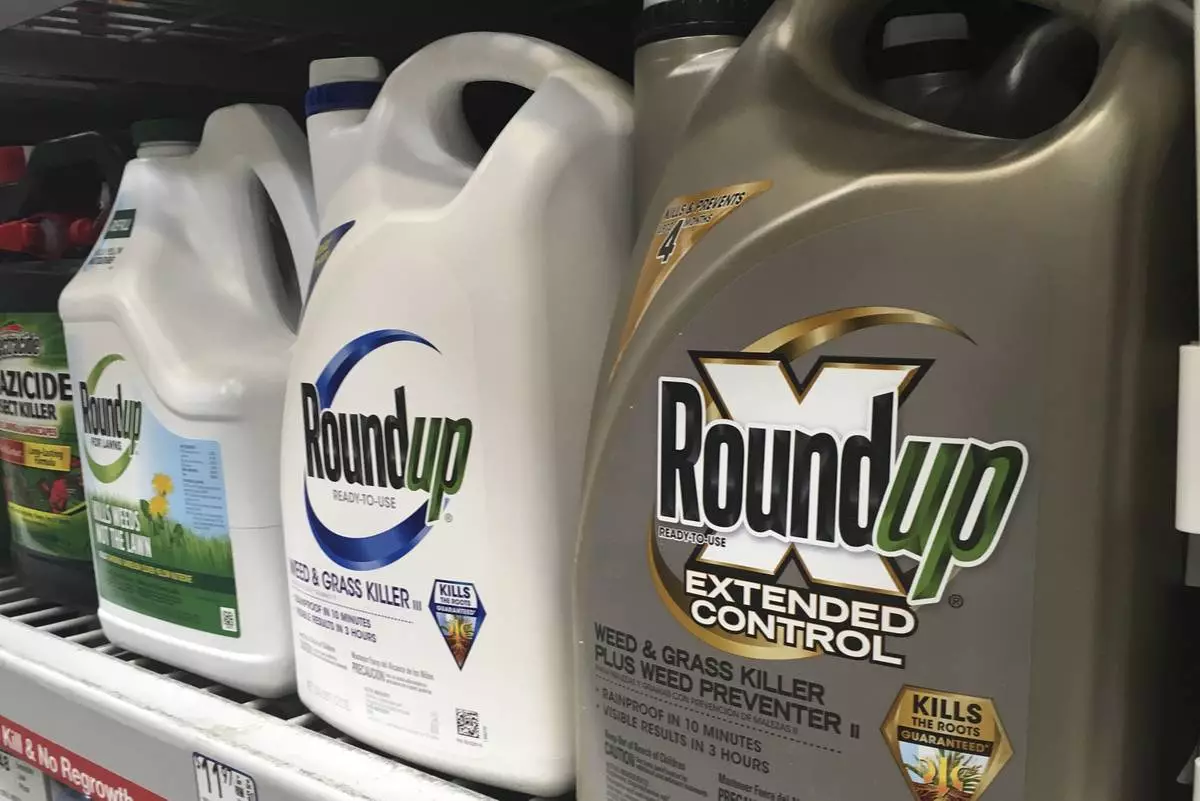While numerous women tried hard to increase breast size, a woman from Brazil suffered to go through double mastectomy due to a fatal ductal carcinoma. This brave woman beat the looming death after all. And she even shows her topless body in churches while sharing her story.

Click to Gallery
While numerous women tried hard to increase breast size, a woman from Brazil suffered to go through double mastectomy due to a fatal ductal carcinoma. This brave woman beat the looming death after all. And she even shows her topless body in churches while sharing her story.
Mariana Milward, 33, has exposed her scars where there should be breast in more than two hundred churches in Rio de Janeiro in over three years. "But I can't hide something I'm proud of. My scars show I've been through a war and I've survived". she said.
She gave birth to her son after the breast surgery.
The former sergeant nurse was diagnosed with rare aggressive, stage three, infiltrating ductal carcinoma in 2009 when she was 24 years old. Doctors warned her chances of survival were so low they even prepared her death certificate in advance.
However, Mariana did fight back the god of death and survived. She said: "I promised God that if I survived I would never be ashamed of my scars or embarrassed to show them."
Her extraordinary campaign has shocked many people but she claims to have inspired a lot of women battling breast cancer.
Mariana Milward, 33, has exposed her scars where there should be breast in more than two hundred churches in Rio de Janeiro in over three years. "But I can't hide something I'm proud of. My scars show I've been through a war and I've survived". she said.


She gave birth to her son after the breast surgery.
The former sergeant nurse was diagnosed with rare aggressive, stage three, infiltrating ductal carcinoma in 2009 when she was 24 years old. Doctors warned her chances of survival were so low they even prepared her death certificate in advance.

However, Mariana did fight back the god of death and survived. She said: "I promised God that if I survived I would never be ashamed of my scars or embarrassed to show them."
"In the beginning, a lot of people were shocked. Even today, some are still outraged at what I do.When I tell my story and remove my top, there are a few who turn their faces away saying they don't want to see it."
"But there are many who get very emotional and hug me. They share their stories of suffering and say they're inspired by how I've pulled through."

Her extraordinary campaign has shocked many people but she claims to have inspired a lot of women battling breast cancer.
Mariana said: 'I prefer to stay the way I am. I'm happy and I'm cured. Although I have no breasts I'm an example to other women that miracles can happen and there is always hope."

Her husband and son.
DES MOINES, Iowa (AP) — Stung by paying billions of dollars for settlements and trials, chemical giant Bayer has been lobbying lawmakers in three states to pass bills providing it a legal shield from lawsuits that claim its popular weedkiller Roundup causes cancer.
Nearly identical bills introduced in Iowa, Missouri and Idaho this year — with wording supplied by Bayer — would protect pesticide companies from claims they failed to warn that their product causes cancer, if their labels otherwise complied with the U.S. Environmental Protection Agency’s regulations.
But legal experts warn the legislation could have broader consequences — extending to any product liability claim or, in Iowa’s case, providing immunity from lawsuits of any kind. Critics say it could spread nationwide.
"It’s just not good government to give a company immunity for things that they’re not telling their consumers,” said Matt Clement, a Jefferson City, Missouri, attorney who represents people suing Bayer. “If they’re successful in getting this passed in Missouri, I think they’ll be trying to do this all over the country.”
Bayer described the legislation as one strategy to address the “headwinds” it faces. About 167,000 legal claims against Bayer assert Roundup causes a cancer called non-Hodgkin’s lymphoma, which Bayer disputes. The company has won some cases, settled many others but also has suffered several losses in which juries awarded huge initial judgments. It has paid about $10 billion while thousands of claims linger in court.
Though some studies associate Roundup's key ingredient with cancer, the EPA has regularly concluded it is not likely to be carcinogenic to humans when used as directed.
The costs of “defending a safe, approved product” are unsustainable, said Jess Christiansen, head of communications for Bayer's crop science division.
The legislation was introduced in targeted states pivotal to Bayer's Roundup operations and is at a different stage in each. It passed the Iowa Senate, is awaiting debate in the Missouri House and was defeated in Idaho, where this year's legislative session ended.
Farmers overwhelmingly rely on Roundup, which was introduced 50 years ago as a more efficient way to control weeds and reduce tilling and soil erosion. For crops like corn, soybeans and cotton, it’s designed to work with genetically modified seeds that resist Roundup’s deadly effect.
Missouri state Rep. Dane Diehl, a farmer who worked with Bayer to sponsor the legislation, cited concerns that costly lawsuits could force Bayer to pull Roundup from the U.S. market, leaving farmers to depend on alternative chemicals from China.
“This product, ultimately, is a tool that we need," said Diehl, a Republican.
Iowa Gov. Kim Reynolds, a Republican, said in an email the legislation maintains the integrity of the regulatory process and, without it, “Iowa risks losing hundreds of jobs” in Muscatine, an eastern Iowa city where Roundup is mostly produced.
The Associated Press is seeking public records on Bayer’s communications with governor's offices in Iowa, Missouri and Idaho.
Bayer, like other companies, hires lobbyists in states to advocate for its interests. The company backs this legislation in the states where “we have a big, direct economic impact,” Christiansen said.
Roundup’s key ingredient, glyphosate, is derived from phosphate mined in Idaho. And St. Louis is the headquarters of its North America crop science division, acquired in its 2018 purchase of Monsanto. Because of that, many of the lawsuits are filed in Missouri.
The five lobbyists registered for Bayer in Iowa and three in Idaho is largely consistent with recent years, but the number working in Missouri this year ballooned from four to nine. Lobbyist expenditures exceeded $8,000 in Idaho this year; similar information was not available in Iowa or Missouri.
Led by Bayer, a coalition of agricultural organizations called Modern Ag Alliance also is spending tens of thousands of dollars on radio and print advertisements claiming that trial lawyers and litigation threaten the availability of glyphosate.
On its website, the group asserts that at risk are 500 jobs connected to glyphosate production in Iowa, and 800 jobs in Idaho.
Bayer stopped short of threatening closures. The Iowa facilities, including in Muscatine, “are very critical facilities to our business, so we'll remain at some sort of support level,” Christiansen said.
At issue in the lawsuits and legislation is how Bayer – and any other pesticide company — communicates with consumers about the safety of its products.
Companies are required to register products with the EPA, which evaluates — and then reevaluates every 15 years — a pesticide and its label. The EPA reiterated in 2020 that glyphosate used as directed posed no health risks to humans. But a federal appeals court panel in 2022 ruled that decision “was not supported by substantial evidence” and ordered the EPA to review further.
The debate over glyphosate escalated when a 2015 report by the International Agency for Research on Cancer, part of the World Health Organization, said it's “probably carcinogenic to humans" based on “limited” evidence of cancer in people and “sufficient” evidence in study animals.
Based on that international report, California sought to add a cancer warning label to products containing glyphosate. But a federal appeals court ruled against California last November, concluding such a warning wasn't factual.
Christiansen emphasized that many regulatory agencies worldwide agree with the EPA and insisted Bayer has to stick to EPA labeling to ensure it isn't providing false or misleading information. She added that the company is transparent in the information it does provide.
Critics of the legislation aren't convinced, citing examples such as opioids and asbestos that had been deemed safe for use as directed — until they weren't.
There also are concerns that the legislation could stifle any product liability claim since most rely on the argument that a company failed to warn, said Andrew Mertens, executive director of the Iowa Association for Justice, an organization for trial lawyers.
Jonathan Cardi, a product liability and torts expert at Wake Forest University School of Law, also said a strict reading of the Iowa legislation extends beyond liability claims, and “the way it’s drafted makes it interpretable to mean nobody could bring any suit.”
In lobbying lawmakers and in speaking with the AP, Bayer representatives disputed that the legislation would cut off other legal actions. Several legal experts said the legislation is unlikely to affect the 18,000 lawsuits already pending in Missouri’s capital of Jefferson City, and wouldn’t prevent claims in states that don’t adopt similar legislation.
In Idaho, the Republican-led Senate narrowly defeated the bill amid concerns about relying on federal agencies' safety standards and limiting the ability of harmed individuals to sue.
John Gilbert, who farms in Iowa Falls, Iowa, with limited use of Roundup, called Republicans hypocritical for attempting to protect corporate interests after campaigning on standing up for Iowans.
The bill “invites a lot of reckless disregard," said Gilbert, who is on the board for the Iowa Farmers Union. “No amount of perfume’s gonna make it anything but a skunk."
Lieb reported from Jefferson City, Missouri.

FILE - Soybeans are seen in a field on a farm, Friday, Sept. 2, 2016, in Iowa. The maker of a popular weedkiller is turning to lawmakers in key states to try to squelch legal claims that it failed to warn about cancer risks. (AP Photo/Charlie Neibergall, File)

FILE - The Bayer AG corporate logo is displayed on a building of the German drug and chemicals company in Berlin, Monday, May 23, 2016. Bayer, the maker of a popular weedkiller, is turning to lawmakers in key states to try to squelch legal claims that it failed to warn about cancer risks. Bayer disputes such claims but already has paid about $10 billion to resolve them. (AP Photo/Markus Schreiber, File)

FILE - Phosphate ore is dug up and transported from Monsanto Company's South Rasmussen Mine site near Soda Springs, Idaho, July 16, 2009. Bayer acquired Monsanto in 2018. Bayer, the maker of a popular weedkiller, is turning to lawmakers in key states to try to squelch legal claims that it failed to warn about cancer risks. The company disputes such claims. A key ingredient of the weedkiller, glyphosate, is derived from phosphate mined in Idaho. (Bill Schaefer/The Idaho State Journal via AP, File)

FILE - Containers of Roundup are displayed on a store shelf in San Francisco, Feb. 24, 2019. Thousands of legal claims against drug and chemicals company Bayer assert Roundup causes a cancer called non-Hodgkin’s lymphoma, which Bayer disputes. (AP Photo/Haven Daley, File)

FILE - A soybean field is sprayed in Iowa, July 11, 2013. The maker of a popular weedkiller is turning to lawmakers in key states to try to squelch legal claims that it failed to warn about cancer risks. (AP Photo/Charlie Neibergall, File)



















